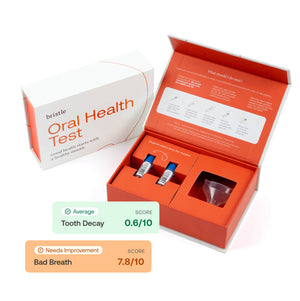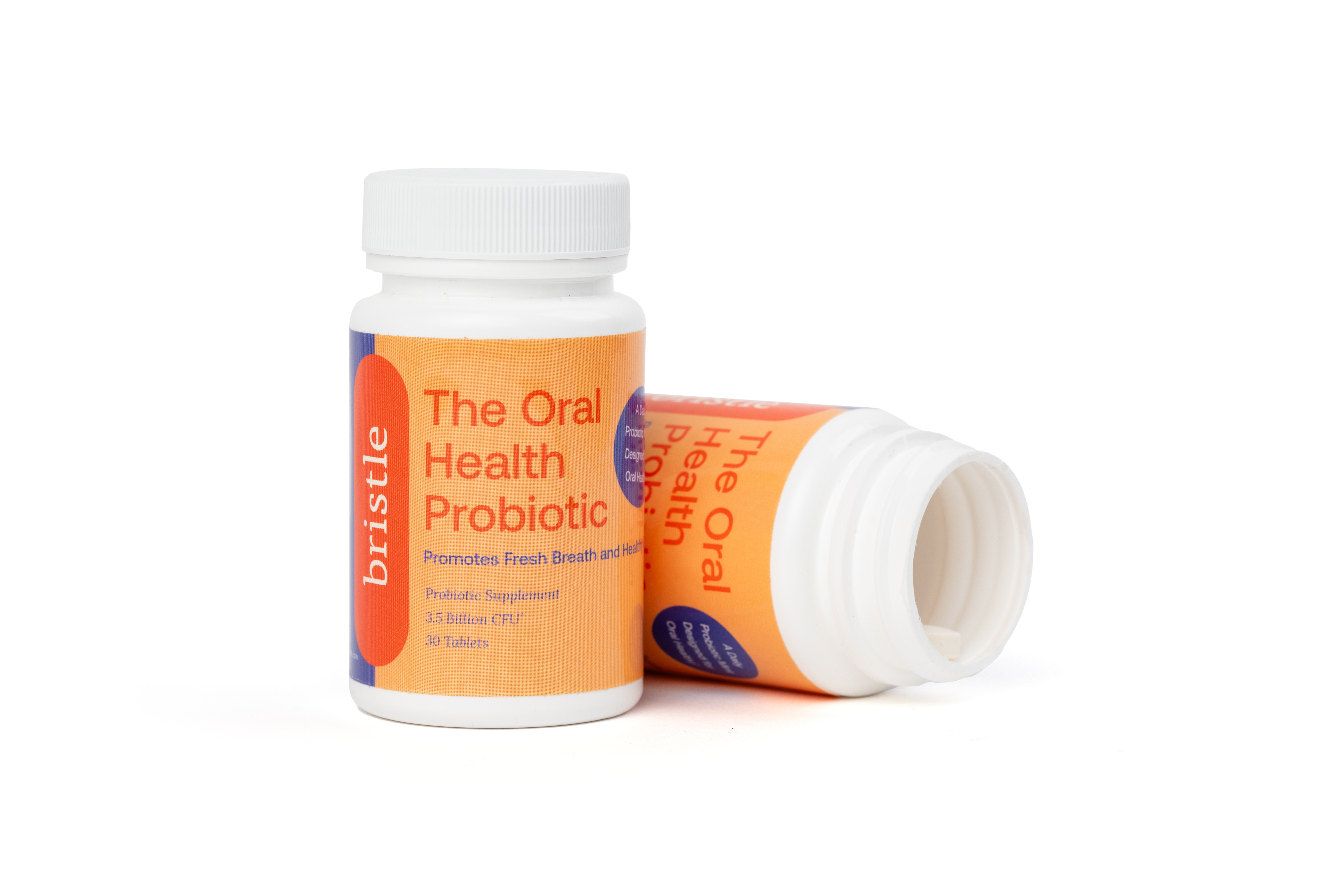You've probably heard of hydrogen peroxide and some of its many applications. But did you know that hydrogen peroxide can be used to maintain good oral hygiene? Hydrogen peroxide is a powerful antiseptic, killing most microbes on contact. However, hydrogen peroxide should be used sparingly to maintain the right mix of good bacteria in the oral microbiome, the community of microbes that live symbiotically in your mouth helping to keep you healthy.
What exactly Is hydrogen peroxide?
Hydrogen peroxide is a potent disinfectant used to disinfect wounds, and surfaces. Hydrogen peroxide has the chemical compound H2O2, and is a powerful oxidizer and bleaching solution, which gives it broad antiseptic activity against bacteria, viruses, and yeast.
How does hydrogen peroxide kill bacteria?
Hydrogen peroxide is a reactive oxygen species (ROS), which is a form of molecular oxygen that can react with proteins and cellular membranes. ROS is an oxidizing agent, which interacts with cellular membranes and causes damage called oxidative damage. This oxidative damage can poke holes in bacterial membranes, cause proteins to unfold, and cause DNA damage.
Many species of bacteria are well equipped to handle low levels of oxidative damage. Microbes normally experience oxidative stress as they grow and interact with new environments. However, high levels of oxidative damage and stress, such as the rapid exposure to 3% hydrogen peroxide, can instantly lead to cell death. Anaerobic bacteria (bacteria that survive without oxygen) are not as well equipped to deal with oxidative damage as aerobic bacteria (bacteria that grow in the presence of oxygen). This means that hydrogen peroxide can kill anaerobes better than aerobes. This is a major factor in its use against bacteria that cause gum disease. Read more to find out why!
The oral microbiome
The bacteria in the mouth are part of a community of bacteria, fungi, and viruses called the oral microbiome. In healthy people, this ecosystem of microbes works symbiotically with you and your mouth to maintain your health. They help to train your immune system to keep bad bacteria at bay, they fill every niche and eat up nutrients so that pathogenic bacteria don’t overgrow and cause disease. When the oral microbiome becomes imbalanced, bad bacteria are more likely to grow and cause issues, this is a status known as oral microbiome dysbiosis.
Hydrogen peroxide and gum disease
Nearly half of adults over the age of 30 in the United States have some form of gum disease. Gingivitis (the early, reversible stage of gum disease) can progress to periodontitis if left untreated. This more severe form of gum disease can lead to tooth loosening or even tooth loss.
Gum disease is caused by an accumulation of specific oral bacteria that cause inflammation of the gums. If these pathogenic bacteria are left undisturbed, and the inflammation is left untreated, gingivitis can quickly worsen and disease can progress to more severe forms of gum disease like periodontitis. Not all bacteria cause gum disease, but a specific subset of about a dozen anaerobic bacteria such as Porphyromonas gingivalis, Tannerella forsythia, Treponema denticola, and Fusobacterium nucleatum are linked to progression of gingivitis to periodontal disease, and have been shown to cause gum inflammation.
As these bacteria grow at the gumline, they form a structure known as biofilm, which hardens to become dental plaque. High levels of dental plaque are associated with worse disease, and thick dental plaque is a hallmark sign of poor oral hygiene. Hydrogen peroxide can prevent and treat gum disease because it can kill harmful bacteria and break up plaque.
While hydrogen peroxide can kill the bad bacteria that cause disease, it also kills the good ones. This means that the bad bacteria can quickly come back and outgrow the good ones, similar to weeds in a garden. After all the native plants have been removed or killed, weeds are more likely to grow because there is nothing occupying the space and eating the nutrients.
Hydrogen peroxide and tooth decay
Cavities are also caused by specific oral bacteria that create acid. Acid can erode enamel and create cavities. Hydrogen peroxide is also able to kill these bacteria on the tooth surface, and reduce their abundance, thus reducing acid and cavities. However, hydrogen peroxide will not help remineralize teeth, an important factor in reversing tooth decay.
Hydrogen peroxide for bad breath
In addition to treating gum disease, killing bacteria can also reduce bad breath. However, hydrogen peroxide is only a temporary solution to bad breath, as the bacteria that cause bad breath can rapidly grow back.
This happens because hydrogen peroxide cannot kill 100% of the bacteria in the mouth. It does not fill every nook and cranny, and the leftover 1% can quickly come back. Often people who use hydrogen peroxide mouthrinse experience worse bad breath after wiping out their oral microbiome. By using hydrogen peroxide, you are also killing the good bacteria in the mouth that keep the bad ones low. This creates an imbalance that allows the bad ones to rapidly come back.
Does hydrogen peroxide kill good bacteria in your mouth?
Yes, all broad antimicrobial and antiseptics generally kill the good bacteria in the mouth. You should avoid this as often as possible. However, hydrogen peroxide and other disinfectants are extremely useful at reducing symptoms of gum disease. Long-term use of mouthwash that kills good bacteria is associated with hypertension, and can lead to worse oral dysbiosis.
Is hydrogen peroxide safe as a mouthwash?
At concentrations below 3%, hydrogen peroxide mouthwash is generally safe. Many over-the-counter oral care products contain small amounts of hydrogen peroxide, and are safe and effective when used correctly. However, at higher concentrations of hydrogen peroxide, its use can cause irritation and unwanted side effects like gum and teeth sensitivity.
Hydrogen peroxide is also commonly used to disinfect mouthguards and retainers, and is safe to use at higher concentrations on orthodontic appliances as long as they are rinsed before use.
Using oral probiotics with hydrogen peroxide
As hydrogen peroxide is so powerful at killing bacteria, one method to reintroduce good bacteria into the oral microbiome is to use dental probiotics. You can read our guide here on which are the best dental probiotics and oral probiotics for oral health.
Is hydrogen peroxide right for you?
At Bristle, we analyze the oral microbiome and provide suggestions and coaching to optimize your oral microbiome and oral health. By analyzing the oral microbiome you can find out if hydrogen peroxide or another mouthwash ingredient is the best mouthwash for you.





